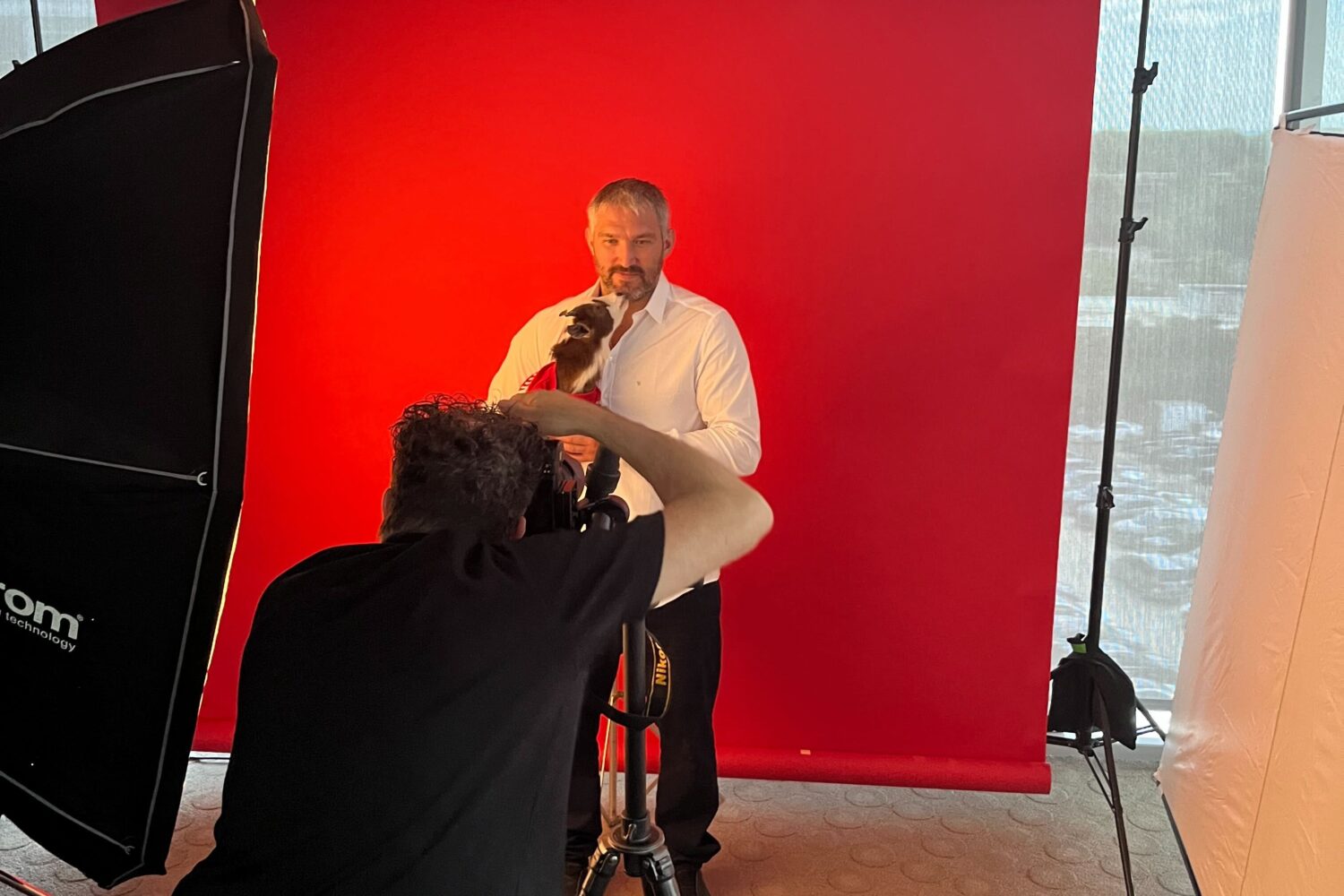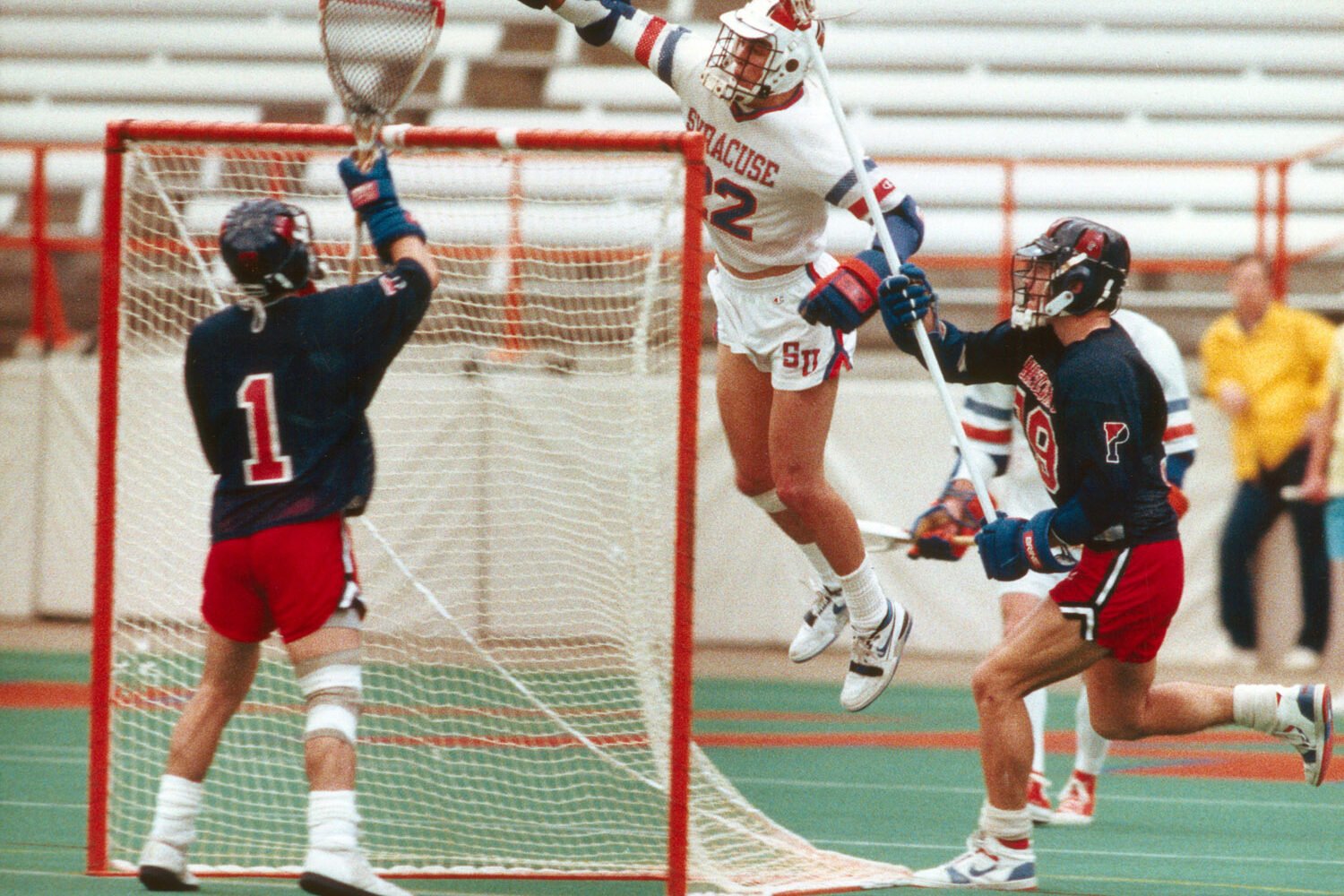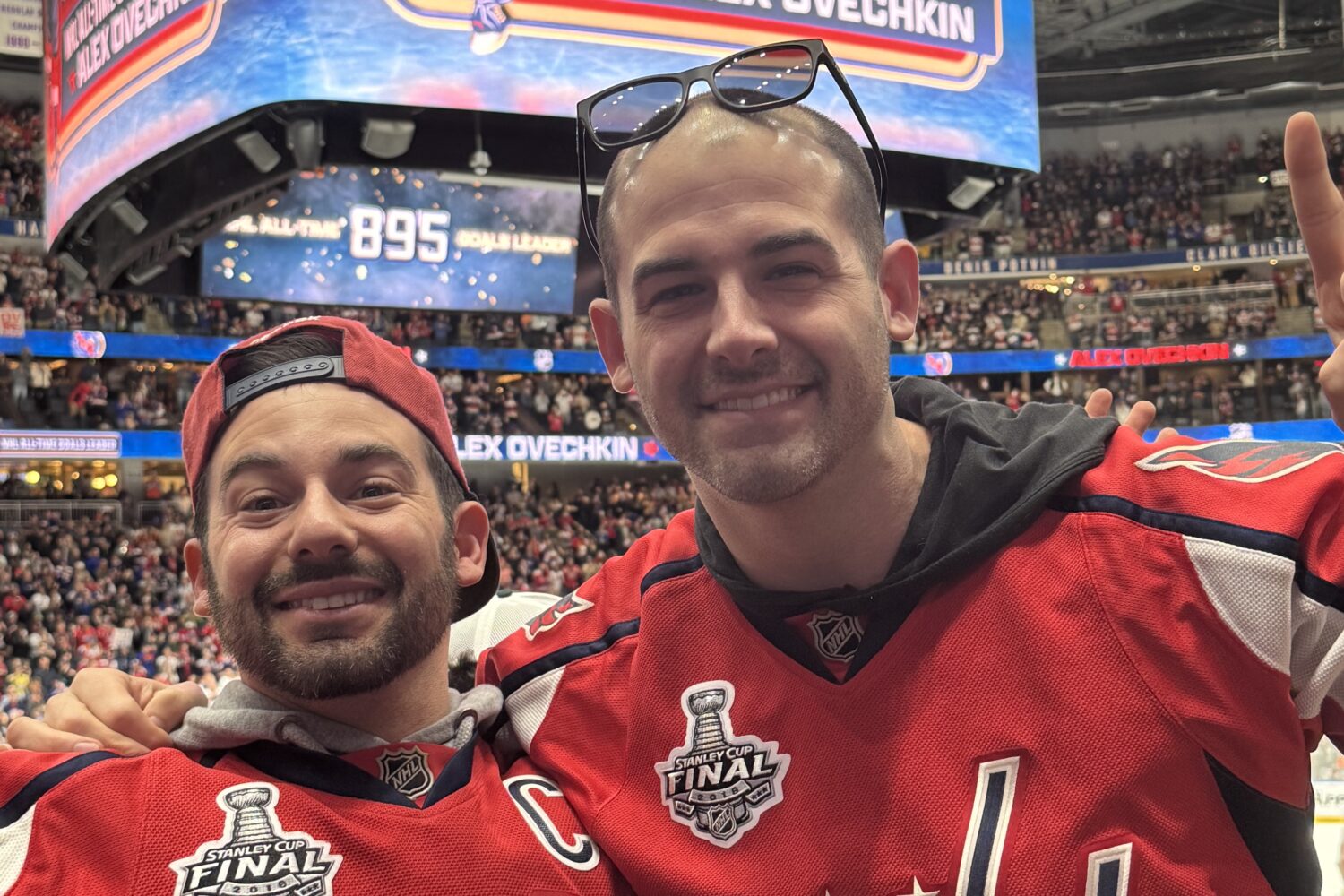Washington has recently been home to some of the world’s best-known athletes, including megastars Alex Ovechkin, Bryce Harper, and Wayne Rooney. Phil de Picciotto may not be that famous, but in the sports-business world he’s a pretty big deal as well. The president of the management firm Octagon helps steer the careers of more than 400 athletes, from NBA A-listers (Steph Curry) to MLB aces (Felix Hernandez) to Olympic gold-medalists (Simone Biles) to NASCAR legends (Jimmie Johnson).
Cofounded in the 1980s by de Picciotto, an attorney, Octagon has more than 800 employees in more than 60 offices around the world. We met up with him recently at his McLean office to chat about how politics is affecting athletes, why e-sports might not be a great bet, and what Washington’s football team should do for its fans.
Is this a good time to be an athlete?
It depends. If one is a top athlete, the opportunities are greater than they ever have been before. The combination of celebrity and wealth has never been more impactful. If one isn’t a top athlete, however, there’s much more pressure. The average tenure of an NFL player is 3.8 years. There are more people attracted to the game, so competition is fiercer than ever. In society, we’re seeing substantial pressures on the middle class, and the sports world is no different.
Politics has become a big issue in sports. Is being politically active good or bad for an athlete right now?
The most important thing for an athlete is to be authentic. So you don’t want to stifle personality. Anytime you try to force someone to act in a way that’s not comfortable for him or her, there will probably be a performance effect that’s negative, and there might also be a locker-room effect that’s negative.
People generally don’t agree on things in our society right now. So, for example, with the NFL anthem protest: If one regards the anthem as being a symbol of America militarily, those people tend to disfavor any display on the sideline that they feel is not honoring it. There’s a corresponding group who view the anthem as standing for America’s civil liberties, including freedom of speech and expression. They would tend not to see anything wrong with someone exercising his or her right of free speech and expression. It’s our underlying belief that influences our positions on issues such as this.
How would you counsel an NFL player who was wrestling with whether or not to participate in a sideline anthem protest?
My philosophy is that people act, generally, for one of two reasons. The first is because it makes them feel better. The second is because it strategically helps to get them to where they are trying to go. So the dialogue with one of our clients would very often center around: You’re obviously committed to trying to make a difference. But is this particular action in this particular time and place more a result of emotions? And if it is, will it make you play better or worse? Will it add to chemistry in the locker room or do the opposite? Is it respectful to your employer and then the league or not?
Or, separately, is it non-emotional? Is it strategic? In which case, what are the other options for communicating what you want to communicate? And is this the best way to do it? Does it achieve the goal for you personally? Or your team? Or the owner of your club or your league or your community? There is no cookie-cutter answer.
DC is expected to legalize sports betting soon. How will that affect your business?
The dominant position of sports in our society may actually be enhanced by the legalization of gambling. It’s been shown through research that those who have a vested interest in a game for reasons other than just watching it—like if you’re a friend of someone participating in the game—will watch longer and engage more deeply.
The same is true with fantasy sports, which are the precursor in many ways to broader sports gambling. In fantasy sports, you have a vested interest in a particular play or outcome even when the game itself might not be so exciting. Legalized and regulated sports gambling can have the same effect, which will dramatically increase the length and depth of viewer engagement in sporting events. This will enhance the value of the media rights, which in turn are shared, in most cases, with the talent.
The most important thing is for an athlete to be authentic. You don’t want to stifle personality.
DC also recently got its first e-sports team. What do you think about competitive video-game playing as a business?
Most people are very positively disposed toward the future business of e-sports. It has the benefit of a generation of people who are consuming it in very large numbers for a lot of hours every day. What we don’t have is any history, and it’s not a very healthy lifestyle if it’s taken to the extreme.
So the question will be: Will the next generations continue to adopt it the same way? And other than the game manufacturers and the hardware manufacturers, who really can build businesses around it? I’m skeptical. I’m not dismissive. But for us, it’s really premature to make any sizable bet in it. But many, many people disagree with me.
The Washington Mystics were recently in the playoffs, and it didn’t seem to generate a lot of excitement. Why hasn’t women’s sports caught on more here?
Women’s sports is in a much more prominent position in our society than it ever has been. Tennis is the leading sport for gender equality, with all the Grand Slam tournaments paying equal prize money, and the viewership on television [sometimes] is skewed in favor of the women.
The biggest events in women’s sports hold their own with the biggest events in men’s sports. The Women’s World Cup [final] in soccer out-rated the NBA Finals. Impacts are made in women’s sports every day. One recent example is Amazon hiring Andrea Kremer and Hannah Storm—both Octagon clients—to be the first all-female broadcast booth for [an NFL telecast]. They were hired not because they are women commentators but because it gives the audience of consumers a choice, and they’re exceptionally good—period. I’m 100 percent confident that you’re going to continue to see that evolution go in a direction toward parity.
Should the Skins bring their new stadium back to DC or stay in the burbs?
I’ll answer this from a different angle. Sports depends on fan engagement. Without the fans, you don’t have the TV viewership and you don’t have the attendance at games. The in-arena experience is already challenged because of technology, so that you can consume games in any way that you want sitting in your home—and it’s much less expensive, it’s much less time-intrusive, and you can multitask. People have choices to spend their time and their money going to a football game or going to a park or going to a restaurant or doing a million other things.
So the Redskins need to be extremely attentive to the fan experience. That should be paramount over any other considerations, and different locales will offer different attributes. Getting in and out of the stadium easily is a critical issue. Not having spent so much money on the stadium that you need to recoup it in revenues that are going to impact the fans’ pockets too deeply is a critical issue. Making the experience terrific once you’re inside the stadium—with technology, with food, with all the other things that are coming—is going to be critical.
Teams don’t win all the time, so you have to create an experience that people want to give up part of their day to go see, in good times and bad. The location of a stadium is a minor consideration compared to that.
Speaking of good and bad times, are the Skins going to win the Super Bowl this year?
Football is difficult to predict because of the size of the rosters. You have to have offense, defense, and special teams all clicking at exactly the same time. But the Redskins have some momentum. They seem to have a cohesive clubhouse, which is critical. Many teams don’t have a chance to win, and in many past years I would have said that about the Redskins. But this year they actually have a chance to do very well.
This article appears in the December 2018 issue of Washingtonian.


![Luke 008[2]-1 - Washingtonian](https://www.washingtonian.com/wp-content/uploads/2017/10/Luke-0082-1-e1509126354184.jpg)

















